- Home
- Micheal Maxwell
Cole Fire Page 2
Cole Fire Read online
Page 2
“This place is crawling with Gooks,” the voice said.
“Don’t use that word. It’s racist.” Wiltz said aloud.
“Gook, Gook, Gook!” Charlie’s voice screamed in his head. “I bet this is where the tunnels start.”
“Stop. There is nothing I can do.” Wiltz answered.
“Really? This is how heroes are made. Medals are won. Legends are born.” Charlie Baranski was as frightening as he was beguiling.
“What do we do?”
“Get back to the barracks, come up with a plan of attack. Come back under cover of darkness.” Charlie chuckled, then coughed in his raspy Marlboro hack.
Don Wiltz stepped back from the window. He watched from the shadows as the girl took her place behind a nail station. She unlocked the drawer and took out a set of files, clippers, and acrylic nails. She spun around in her chair and took inventory of the polish on the wall behind her.
* * *
The two blocks back to the bus stop took less than three minutes. Wiltz ran as if his life depended on it. He paced and mumbled while he waited for the bus. Within thirty minutes he was unlocking the door to his apartment.
Wiltz ignored the blinking yellow light on his telephone, so he didn’t know Terri called to check up on him. He was never one to pick up on signals; an odd thing for a counselor trained to find the root of people’s problems. Terri constantly gave out signals. It was obvious to everyone in the department that she was more than willing to continue their day together after hours. The presents on his birthday, Christmas, Easter, Veteran’s Day, Boss’s Day, even a heart-shaped box of chocolates on Valentine’s Day, were just “nice gestures” in Wiltz’s myopic view of his workplace.
Several of the men in the Mental Health department, both married and single, were falling all over themselves for the pretty widowed secretary who sat outside Wiltz’s door. They were all wasting their time, because Terri only had eyes for her boss.
The sound of his keys dropping into the glass bowl on the counter sounded like glass beads in a doorway. He was back in Saigon. He stood in the middle of his small living room and slowly turned around. Round and round. The sounds of mortars in the distance made his breathing quicken. As he became more aware of the pulsing blood in his temples the mortar shells grew closer.
“They’re moving into the city.” Charlie’s voice cut through the half-lit townhouse.
“The tunnels.” Tunnels are running under your girlfriend’s shop.”
“She’s not my girlfriend,” Wiltz snapped.
“We gotta to take them out. Burn them out.”
“I need to tell someone.”
“No!” Charlie shouted. “We’re doing this ourselves. Then we take the credit, get the glory, and get the medal.”
“But how?”
“Napalm.” Charlie whispered.
“Napalm?”
“Like we made in Nam.”
“I never...”
“Yes, you did.” Charlie laughed hoarsely. “Hurry up. We’ll go back at midnight.”
Wiltz went to the refrigerator. He removed the two-liter bottle of orange soda and poured what was left of it into three glasses. In the cupboard under the stove he pulled out the stack of Styrofoar take-away cartons from the Chinese restaurant. He never wasted anything: they were washed, cleaned and stacked. But this was the first time he’d ever used one.
Bit by bit, he tore a Styro carton into little thumbnail-sized pieces and dropped them into the soda bottle. A third of the way full and two-and-a-half cartons later, he stopped.
The white cap screwed down tight, he set the bottle on the counter. In the upstairs bedroom where no one ever slept, Wiltz flipped through the old shirts, sweaters and jackets until he spotted the army green field jacket. He stared for a moment at the patch with WILTZ stitched on the chest. He slipped the jacket on and went into the bathroom.
His hands trembled as he fumbled with the zipper. Zipping it all the way to the neck, Wiltz stared into the mirror, pleased that it still fit. Careful to turn the light off as he left the room, Wiltz returned to the kitchen, grabbed the soda bottle and his car keys from the glass bowl on the counter.
* * *
The silver Mazda in the one-car garage was rarely driven. He preferred the bus. It forced him to walk to the stop, and then to his office. The last time registration came due from the state he pondered the idea of letting it lapse. In the corner of the tiny space was a red gas can. Even though he only drove to out of town meetings, he kept the gas can full and ready to go. It sat on the garage floor for fear it would cause a fire if he left it in the trunk, but when he left town it was always in the trunk.
Reversing the nozzle lid, Wiltz carefully filled the soda bottle with gasoline. Gently rolling the bottle and tilting it end to end, he watched the Styrofoam pieces begin to dissolve into a translucent gel. Satisfied his mixture was complete, he unlocked the trunk and gently laid the bottle on the canvas emergency bag. He made sure it was cradled atop the bag so it wouldn’t roll around as he drove. He set the gas can tight against it.
Four hours later, he returned to the garage. The drive back to Happy 3 Nails had taken less time than Wiltz thought. The street was empty, and the shops were all closed. He circled the block twice. Pulling into the alley, Wiltz turned his headlights off and used only his parking lights. The alley behind the row of shops was dark except for a lone light bulb burning over an unmarked back door. In his parking lights he saw H3N sprayed across a grey steel door in pink paint. He stopped and got out.
Moving quickly, Wiltz popped the trunk and lifted out the soda bottle. He shook it hard several times. The mixture was perfect. At the bottom of the nail shop’s door was a thick and badly worn rubber weather strip. He fished around in his emergency bag and found a large, flat tip screwdriver.
The screws on the weather strip were rusty and gave way easily as Wiltz repeatedly jammed the screwdriver behind the strip and jerked it away from the door. It only took a minute to remove the strip and expose the nearly inch-wide gap at the bottom of the door.
He gave the bottle one more, good hard shake and removed the cap. He tried to pour the homemade napalm under the door, but as much spilled outside the building as in. Glancing around, he spotted a pizza box in the garbage-strewn alley a few feet away. He unfolded the box and slipped it partway under the door. Wiltz gently poured his mixture down the greasy lid of the box. Like water down a storm drain, the “dragon fire” ran under the door.
As the bottle emptied, Wiltz shoved the box under the door, and wedged the bottle into the gap. He reached in the large pocket of his jacket and took out the box of wooden matches from the kitchen.
“Nice work,” the voice in his head said proudly.
“Are you happy, Charlie?”
“I am proud.” Charlie replied.
Don Wiltz snapped to attention. Just as in days long gone, he saluted, then struck a match. The ground around the door exploded in flames and Wiltz jumped back and hit hard against the car.
He got in and slowly pulled away. Rounding the corner, he drove past Happy 3 Nails, pausing just long enough to see a smoky, orange glow behind the hanging beads in the doorway leading into the back room.
“Good job, soldier.” Charlie’s voice was as clear and strong as when he sat across Wiltz’ desk.
TWO
“Higher, Grandpa, higher!” Jenny squealed with delight as she watched the kaleidoscope colors of the Rabbit kite rise higher and higher into the azure blue April sky.
Cole let the string unspool. The kite pulled against the line as it lifted and swayed high above San Francisco Bay. He watched it spinning and diving, only to rise higher and higher and farther out, over the white-capped water. The little girl and her grandpa were so focused they were unaware of the dozens and dozens of fellow kite pilots that surrounded them.
“Look this way!” Kelly called out. With her camera poised to catch “Team 408” attempting to win the “Build Your Own” kite competition, she pleaded with her subjects to pose. “Come on, you guys, just one picture!” Kelly’s voice was partially lost on the wind, but completely lost to the concentration of Team 408.
A green and orange Tiger kite swerved and banged against Cole and Jenny’s Kaleidoscope Rabbit. In an instant the Tiger was plummeting to earth in a nose-first tailspin. As it spun earthward it draped over the strings of a large white Angel kite and a silver and black Oakland Raiders Rocket kite. To the accompaniment of screams and tears the trio of sticks and colorful tissue fell into the bay.
As parents tried to comfort their pint-sized teammates, Cole continued to coax the Rabbit kite higher and higher into the blue.
“Grandma, grandma! Look, look!” Jenny pointed skyward, one hand blocking her eyes from the sun.
Kelly snapped pictures and laughed at the sight of Cole dancing and stumbling his way around the other contestants. One by one, kites rose and fluttered in the strong April breezes. More strings tangled and the hopes of other kite lovers were dashed on the rocks and water of San Francisco Bay.
Above the cheers and cries of the kite builders, the sound of Lee Dorsey, singing Working in a Coal Mine on Cole’s phone suddenly cut through the noise. “Goin’ down, down, down...”
“Kelly! Help!” Cole yelled into the wind as Lee Dorsey moaned “Lord how long can this go on!”
Cole was playing hooky from work to meet his granddaughter and her paternal grandmother at the Kite Festival. The sound of Working in a Coal Mine meant that Chuck Waddell, his boss and feature editor of the San Francisco Chronicle, was calling.
“Here, give me that,” Kelly said, taking the spool of string in one hand, and sliding the other under the lead line to the kite.
“Hello, Chuck?” Cole called into the phone trying to shield it from the wind.
“Where are you?” Waddell replied.
“Crissy Field! Kite Festival today.”
“I need you to get on a story right away. Jesse Monday is dead.”
“What? How?” Suddenly Cole felt as if he were standing all alone on the meadow.
“Shot,” Waddell said solemnly. “Here’s the thing though, his body has disappeared.”
“What do you mean, disappeared?” Cole asked, not fully taking in the news.
“It’s gone. They took him to the morgue, then the funeral home. And he’s disappeared.”
“That’s crazy,” said Cole, still not believing what he was hearing.
“I need you to get the jump on this. I worked up a website piece—well, Rob did, but this is our story. We’ve been on him since day one. We need to do a bio/obit piece, too. Can you handle both?”
“I’ll be right in,” Cole said.
Without realizing it, Cole wandered several yards from where Kelly and Jenny were. He ran his hand through his hair and sighed.
“What’s the matter? You look like somebody died,” Kelly said as Cole rejoined them.
“They did,” Cole answered.
“Who?” Kelly said, fumbling with the kite spool.
“Grandma! The kite!” Jenny screamed.
Kelly turned back to the kite just in time to see it flopping through the air on its way to a watery demise. Cole grabbed the spool and string from her, and yanked back hard. The kite seemed to stop in mid-flight and right itself. Slowly it began to climb. Cole took a deep breath, and looked at Kelly, who stood with both hands over her mouth, staring up at the Kaleidoscope Rabbit.
“I have to get in to the paper. Jesse Monday has been killed. To make matters worse, the body has disappeared.”
“Jesse Monday, the cult guy?”
“That’s the one. I’ll meet you back at your place later.” Cole turned and knelt down next to Jenny. “Grandpa has to go back to work. I’ll meet you at Grandma’s later, OK?”
The little girl threw her arms around Cole’s neck and gave him a tight squeeze. “Grandma will crash the kite, you know,” Jenny whispered.
“Maybe, but we won’t tease her about it, OK?” Cole whispered back.
“It’s OK if she crashes. We just won’t win, that’s all.” Jenny let go of Cole and turned and watched Kelly struggle with the kite. She shook her head, resigned to the fact that, for her, the competition was over.
The inside of the car was warm from the bright spring sun and the heat felt good on Cole’s back as he settled into the seat. He was parked in the back corner of the lot behind the Palace of Fine Arts, and as he pulled out onto the street he snapped off the radio and tried to recall his first memories of Jesse Monday. Cole was new to San Francisco then, having just moved from Chicago. Jesse was holding a kind of open-air meeting in Golden Gate Park.
As he made his way across town to the Chronicle, Cole remembered several years ago Chuck Waddell sending him to check out the “Jesse Movement.”
“What do you want me to get from it?” Cole asked.
“The truth,” was all Waddell replied.
“The truth?” Cole asked.
“Look, what I want is for you to see this guy first-hand, and to call it like you see it.” Cole thought Chuck Waddell’s tone was strained and a little curt.
“All right,” Cole began. “I’ll check it out.”
As he drove he remembered the day he went to Golden Gate Park, his first encounter with Jesse Monday. He saw streams of people making their way toward the big meadow. Cole parked and joined the procession. The crowd was made up mostly of young people in their twenties, some alone, some were couples holding hands, and some were pushing baby strollers. They were all colors, shapes and sizes, but from their dress most were not what anyone would call upwardly mobile.
“Say, where is everybody going?” Cole asked a tall blonde couple.
“To see Jesse!” they beamed.
“Jesse?” Cole acted dumb.
“Jesse Monday. You haven’t heard of him?” the young man said, adjusting his backpack.
“No, is he a singer or something?” Cole asked.
“He’s a teacher, a wonderful spiritual teacher.”
“He’s changing the world one person at a time. You really should come along and hear him,” the pretty, freckled, but too thin young woman’s tone was friendly, happy, yet almost pleading.
“Sounds like I should. I’m not real religious, though,” Cole said, hoping to draw out a response.
“He’s just the truth.”
There it was again, “the truth.” A strange shudder came over Cole. Did Chuck mean it the way this young couple used it? Cole dismissed the thought as quickly as it came. Yet it was a strange choice of words. Almost slogan-like in its simplicity, and yet it was the hook that they used to try to pull Cole into attending the event.
He struck up the same kind of conversation with a half-dozen other people as he made his way along the crowd. A more than a little overweight Hispanic guy, with bad acne and drinking a bottle of Snapple tea, wasn’t sure why he was there, but had been told that Jesse had things to say that helped his neighbor. A Chinese girl in a pale gray warm-up suit said she was a cancer survivor and credited Jesse with giving her the courage to not give up when she was at her lowest. All the people Cole talked to were drawn to Jesse Monday for their own reasons. None were idle curiosity seekers, and none of them appeared to be looking for personal gain.
The most fascinating person Cole talked to, though, was a black woman in a nun’s habit. “Why are you here, Sister?” Cole inquired.
“The message here is one of hope, love and truth. I have heard from several who come to our women’s shelter that Jesse has healed the sick. I want to see if he is a modern-day prophet—or perhaps a saint.”
“Does the church approve of Jesse Monday?” Cole asked.
“This isn’t about the church,” she answered. Cole thought it a very strange response from a Bride of Christ, but before he could pursue this line of questioning, they came to the edge of the meadow and the nun disappeared into the crowd.
Across the meadow, a crowd of about two thousand were gathered. Blankets and lawn chairs were spread out in a half moon and faced a wooden platform brought in to provide a makeshift stage. A few feet from the stage stood a man with an acoustic guitar who paced back and forth with his head down and his hands in his pockets. Behind him Cole saw a line of at least four or five hundred people making their way to the meadow.
Cole rounded the crowd to the far right side and spotted a seat on the grass about fifty feet from the stage. A small woman with bone-thin features and short bobbed hair turned and smiled at Cole.
“Hessee will heal my ‘earing today,” The woman said in the unmistakable nasal tones of a person who learned to speak without hearing. In both of her ears were large flesh-colored hearing aids.
Cole looked straight at her and asked slowly and clearly, “Is that true?”
“I believe. Thaz all tha’ matters. Hessee says, ‘Believe an’ receive’.”
“I hope you will.” Cole smiled and nodded at the woman.
The man with the guitar mounted the stage. He was rather small, with a spikey hair-do. His clothes seemed a bit young for him, for when you looked closely, his face was lined and weathered, and his features were those of someone much closer to fifty, than the twenty-something he was trying to project. With a broad windmill sweep of his arm, the guitarist hit a chord on the guitar.
“Welcome! Let us raise our voice in song!”
The crowd seemed to leap to their feet as if one huge being. Cole didn’t recognize the words of the first song but the melody was plainly lifted from the chorus of John Lennon’s Give Peace a Chance.
“If we believe, it shall be done. We can make a difference in everyone.” The crowd sang along, some waving their hands above their heads and some just gently swaying to the music. The refrain was repeated time and again, the volume rising and falling as the guitarist directed and led the group.
After three more reworked familiar rock and folk songs, the song leader waved his hand and yelled, “That was great! Find the truth!” Waving to the crowd again, he left the stage.

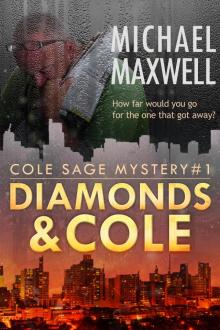 Diamonds and Cole: Cole Sage Mystery #1
Diamonds and Cole: Cole Sage Mystery #1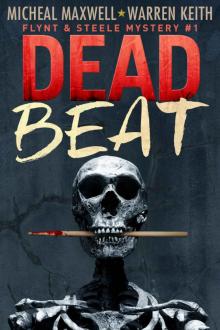 Dead Beat
Dead Beat![[Cole Sage 03.0] Helix of Cole Read online](http://i1.bookreadfree.com/28/cole_sage_03_0_helix_of_cole_preview.jpg) [Cole Sage 03.0] Helix of Cole
[Cole Sage 03.0] Helix of Cole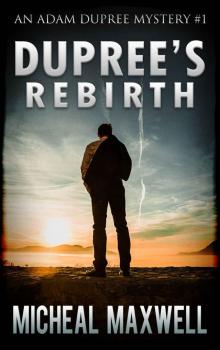 Dupree's Rebirth
Dupree's Rebirth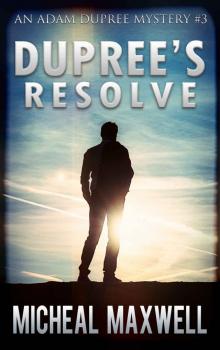 Dupree's Resolve
Dupree's Resolve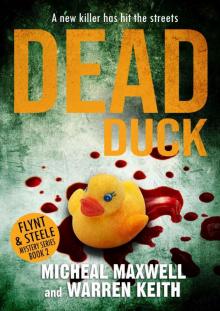 Dead Duck
Dead Duck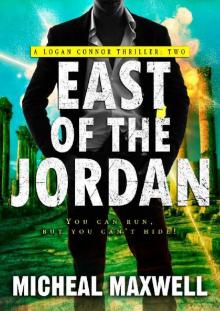 East of the Jordan (A Logan Connor Thriller Book 2)
East of the Jordan (A Logan Connor Thriller Book 2)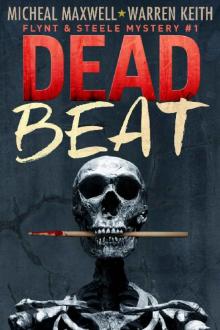 Dead Beat (Flynt and Steele Mystery Book 1)
Dead Beat (Flynt and Steele Mystery Book 1)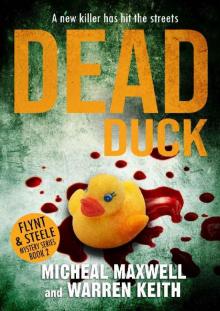 Dead Duck (Flynt & Steele Mysteries Book 2)
Dead Duck (Flynt & Steele Mysteries Book 2)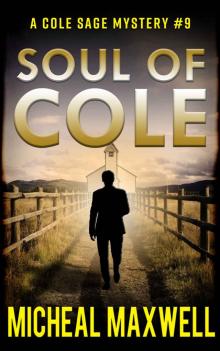 Soul of Cole
Soul of Cole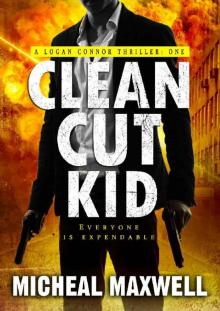 Clean Cut Kid (A Logan Connor Thriller Book 1)
Clean Cut Kid (A Logan Connor Thriller Book 1)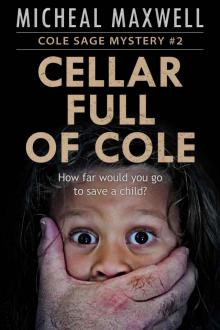 Cellar Full of Cole: A Cole Sage Mystery #2
Cellar Full of Cole: A Cole Sage Mystery #2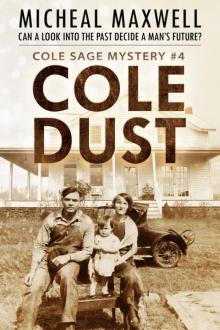 Cole Dust Cole
Cole Dust Cole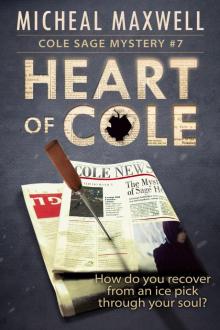 Heart of Cole
Heart of Cole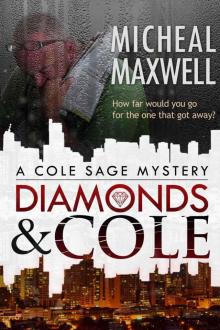 Diamonds and Cole: A Cole Sage Mystery
Diamonds and Cole: A Cole Sage Mystery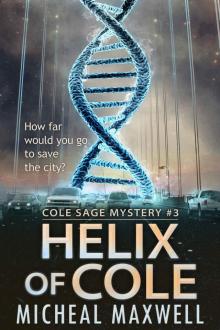 Helix of Cole
Helix of Cole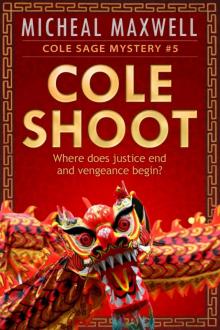 Cole Shoot
Cole Shoot